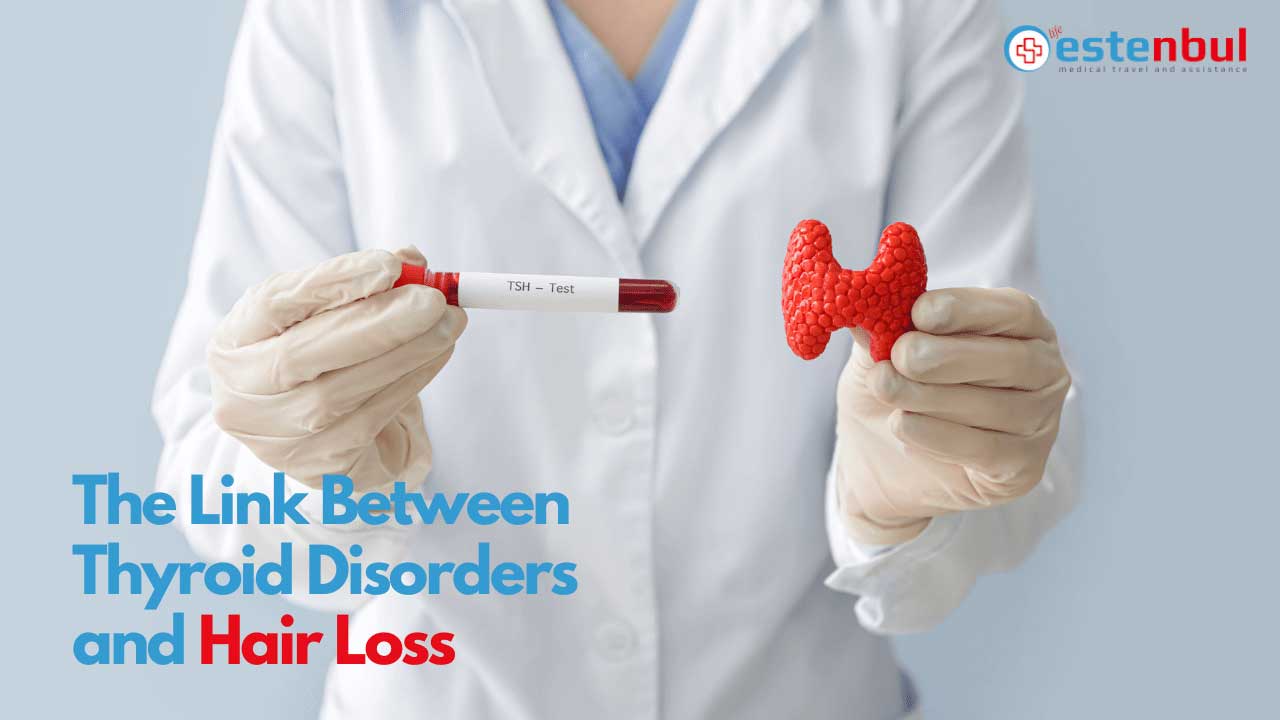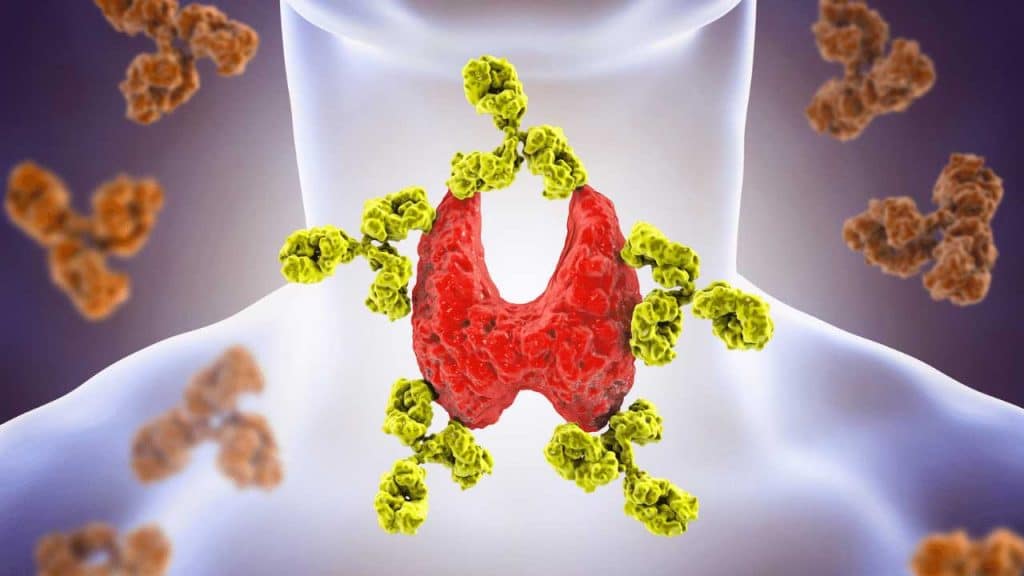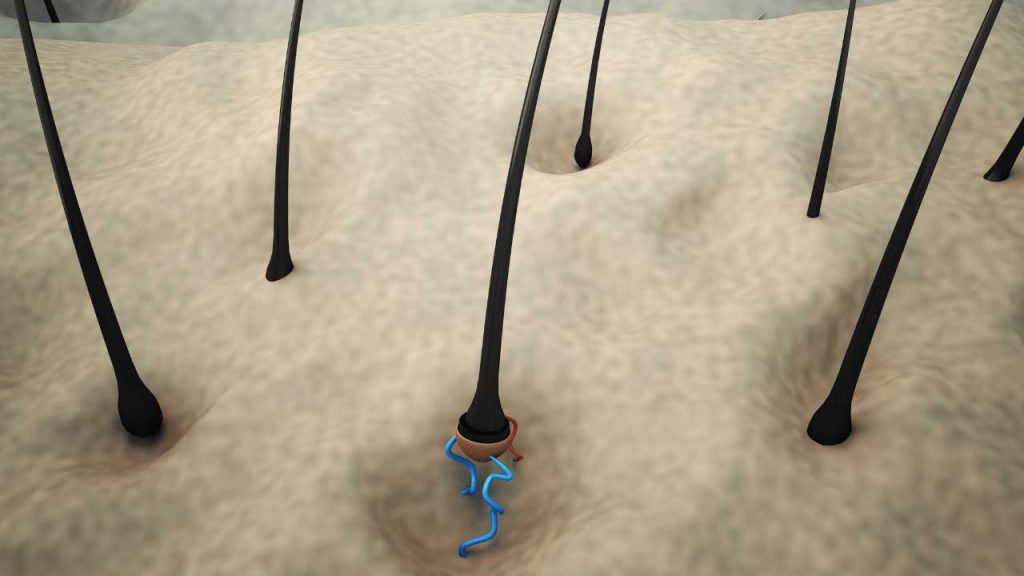
Articles
The Link Between Thyroid Disorders and Hair Loss

Hair loss is a common problem that affects millions of people worldwide. While it can be caused by various factors, including genetics, stress, and age, thyroid disorders are also a significant contributor to hair thinning and loss. The thyroid gland plays a crucial role in regulating various bodily functions, including metabolism and growth. Therefore, any disruption in thyroid function can lead to various symptoms, including hair loss. In this article, we will explore the link between thyroid disorders and hair loss and discuss the available treatment options.
What are Thyroid Disorders?
Thyroid disorders are conditions that affect the thyroid gland, a small, butterfly-shaped gland located in the neck. The thyroid gland produces two essential hormones, T3 (triiodothyronine) and T4 (thyroxine), which regulate the body’s metabolism. When the thyroid gland is not functioning correctly, it can lead to various disorders, including hypothyroidism and hyperthyroidism.

Hypothyroidism and Hair Loss
Hypothyroidism is a condition in which the thyroid gland does not produce enough thyroid hormones. This can lead to various symptoms, including fatigue, weight gain, and hair loss. Hair loss in hypothyroidism is usually diffuse and affects the entire scalp, rather than being patchy or localized. It can also affect other areas of the body, such as the eyebrows and eyelashes.
Hyperthyroidism and Hair Loss
Hyperthyroidism is a condition in which the thyroid gland produces too much thyroid hormone. This can lead to various symptoms, including weight loss, tremors, and hair loss. In hyperthyroidism, hair loss is usually patchy or localized and can occur in specific areas, such as the scalp or eyebrows.
How Thyroid Disorders Cause Hair Loss
The thyroid gland plays a crucial role in regulating hair growth and maintenance. Therefore, any disruption in thyroid function can lead to hair loss. When the thyroid gland is not functioning correctly, it can affect the hair growth cycle, leading to hair thinning and loss.
The Hair Growth Cycle
The hair growth cycle consists of three phases: anagen, catagen, and telogen. The anagen phase is the active growth phase, during which the hair follicle produces new hair. The catagen phase is the transitional phase, during which the hair follicle detaches from the blood supply, and hair growth stops. The telogen phase is the resting phase, during which the hair follicle remains dormant before the cycle begins again.

Thyroid Disorders and Hair Growth
Thyroid disorders can disrupt the hair growth cycle by affecting the duration of the anagen phase. In hypothyroidism, the anagen phase is shortened, leading to hair thinning and loss. In contrast, in hyperthyroidism, the anagen phase is prolonged, leading to hair shedding and thinning.
Treatment Options for Hair Loss in Thyroid Disorders
The treatment for hair loss in thyroid disorders depends on the underlying condition. In hypothyroidism, the treatment involves replacing the missing thyroid hormones with synthetic hormones. In hyperthyroidism, the treatment aims to reduce the production of thyroid hormones using medication, radioactive iodine, or surgery.
Medications for Hypothyroidism
The most common treatment for hypothyroidism is synthetic thyroid hormone replacement therapy. This involves taking a daily dose of levothyroxine, a synthetic form of the T4 hormone, to replace the missing thyroid hormones in the body. This treatment can help reverse hair loss caused by hypothyroidism.
Medications for Hyperthyroidism
The treatment for hyperthyroidism involves reducing the production of thyroid hormones in the body. This can be achieved using medication such as methimazole or propylthiouracil, which block the production of thyroid hormones. Radioactive iodine therapy is also an option, which involves taking a pill or liquid containing radioactive iodine to destroy the thyroid gland’s cells. Surgery may be recommended for severe cases.
Hair Loss Treatment Options
Various hair loss treatments are available, including topical medications, oral medications, and hair transplant surgery. However, it is crucial to address the underlying thyroid disorder first before considering these options. Once the thyroid disorder is under control, hair loss treatment can be more effective.

